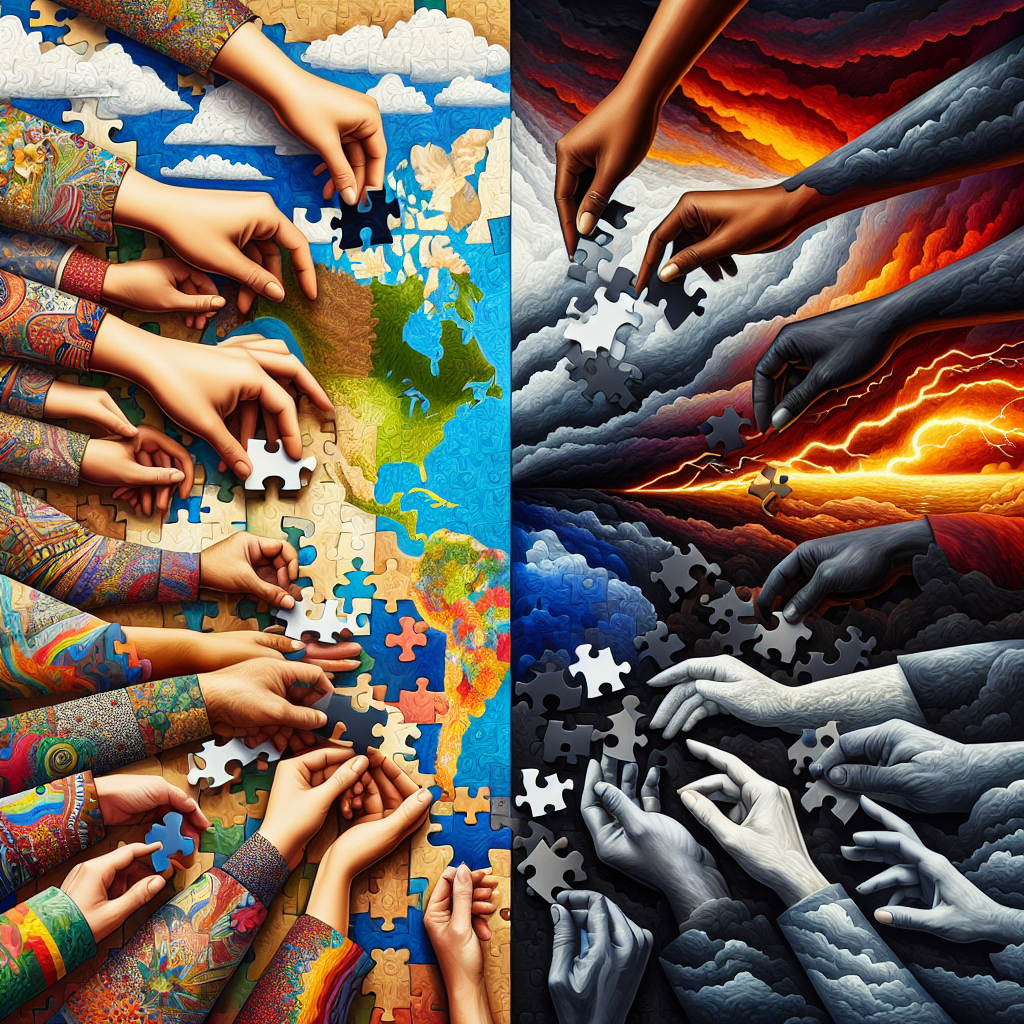The Catalysts of Nation-Building: A Look Back and Forward
In the annals of history, the tumult and tragedy of conflict often birth the unexpected fruits of unity and national identity. This dynamic interplay between aggression and the forging of nations has been a recurrent theme, from the imperial ambitions of Japan in China to the contemporary strife in Ukraine. As we delve into this intricate dance of power, resilience, and identity, we unravel the layers of human ambition and the unanticipated outcomes that shape the world stage.
The Precursors of Conflict
The overextension of Japan in China more than five years ago provides a stark illustration of aggression igniting the flames of national cohesion among the oppressed. Japan, emboldened by a mix of hubris and imperial ambition, saw China as a disjointed entity, rife with internal strife and ripe for domination. This underestimation of Chinese resolve and the failure to anticipate the unifying effect of external aggression are hallmarks of an imperialistic mindset that has echoed through history.
At the heart of Japan's miscalculation was a profound misunderstanding of the spirit and resilience of the Chinese people. Despite being beleaguered by internal warfare and political instability, the extremity of Japanese brutality served as the catalyst for an unprecedented national awakening. The Chinese, long fractured by warlordism and internal discord, found a common cause in the face of a relentless adversary, laying the groundwork for a unified national identity.
Echoes Through Time: The Parallels with Europe
This phenomenon is not unique to the Asian continent. The annals of European history provide a parallel in the actions of Adolf Hitler during World War II. Hitler's invasion of the Soviet Union and the subsequent brutality unleashed upon the Russian people mirrored the Japanese approach in China. Here again, aggression served as a crucible for nation-building, fostering a sense of unity and national identity among the Soviets that had been elusive in the pre-war years.
The aggression not only galvanized the Soviet Union but also set the stage for a protracted and bloody conflict that would ultimately contribute to the downfall of the Third Reich. Hitler, much like the Japanese, underestimated the power of national identity and the resolve of a people united against a common foe.
The Contemporary Canvas: Ukraine
Fast forward to the present day, and we observe the same dynamics at play in Ukraine. The Russian aggression under Vladimir Putin has inadvertently played a significant role in solidifying Ukrainian national identity. Much like the scenarios observed in China and the Soviet Union, the conflict has united Ukrainians in a manner that transcends previous divisions, creating a potent sense of nationhood that is likely to endure long after the current hostilities have ceased.
In this regard, Putin's actions in Ukraine may be seen as inadvertently "canonizing" Volodymyr Zelensky and cementing the foundations of a resilient Ukrainian nation. The irony of aggression serving as the impetus for nation-building is a poignant reminder of the unintended consequences of imperial ambitions.
The Role of Leadership in Unforeseen Outcomes
At the heart of these historical and contemporary scenarios is the role of leadership in shaping the outcomes of conflict. The leaders who embark on campaigns of aggression often do so with a blend of hubris and a misapprehension of their adversary's resilience. The underestimation of the spirit of the people they seek to dominate invariably becomes their Achilles' heel, transforming intended conquests into the seeds of their own undoing.
The leaders of the nations on the receiving end of aggression, from China's collective resistance to Zelensky's embodiment of Ukrainian defiance, demonstrate the transformative power of leadership in harnessing the unifying potential of conflict. Their ability to galvanize a national identity in the face of adversity is a testament to the indomitable spirit of humanity and the unpredictable arc of history.
The Enduring Legacy of Conflict-Induced Unity
The legacy of conflict-induced unity is a complex tapestry of resilience, identity, and the unforeseen consequences of imperial ambitions. The historical and contemporary examples of Japan in China, Hitler in the Soviet Union, and Putin in Ukraine illustrate the paradoxical role of aggression in fostering the very sense of nationhood it seeks to undermine.
As we reflect on these scenarios, we are reminded of the enduring capacity of the human spirit to rise from the ashes of conflict, transformed and unified. The story of nation-building, woven through the fabric of human history, continues to evolve, shaped by the trials of the past and the challenges of the present.
In the end, the narrative of nation-building amidst conflict underscores the profound interplay between aggression and unity, a dynamic that remains as relevant today as it was in the past. As we navigate the complexities of the modern world, the lessons of history serve as both a warning and a beacon, illuminating the path toward understanding, resilience, and ultimately, peace.
For more insights into the dynamics of conflict and nation-building, consider exploring the following resources:
- The Wilson Center's analysis of nation-building efforts
- The Council on Foreign Relations' resources on conflict and global responses
Related News
- Why Some Occupations Spark Miracles and Others Smolder in Disarray
- Challenges of Nation Building: A Comparative Analysis of Post-War Reconstruction
- The Evolution of Ukrainian National Identity Amidst Conflict and Turbulence
- Peering Into the Abyss: The Shadow of Global Conflict in the Modern Era
- The Paradox of Resilience: Unpacking the Soviet Union's Unyielding Spirit in WWII
